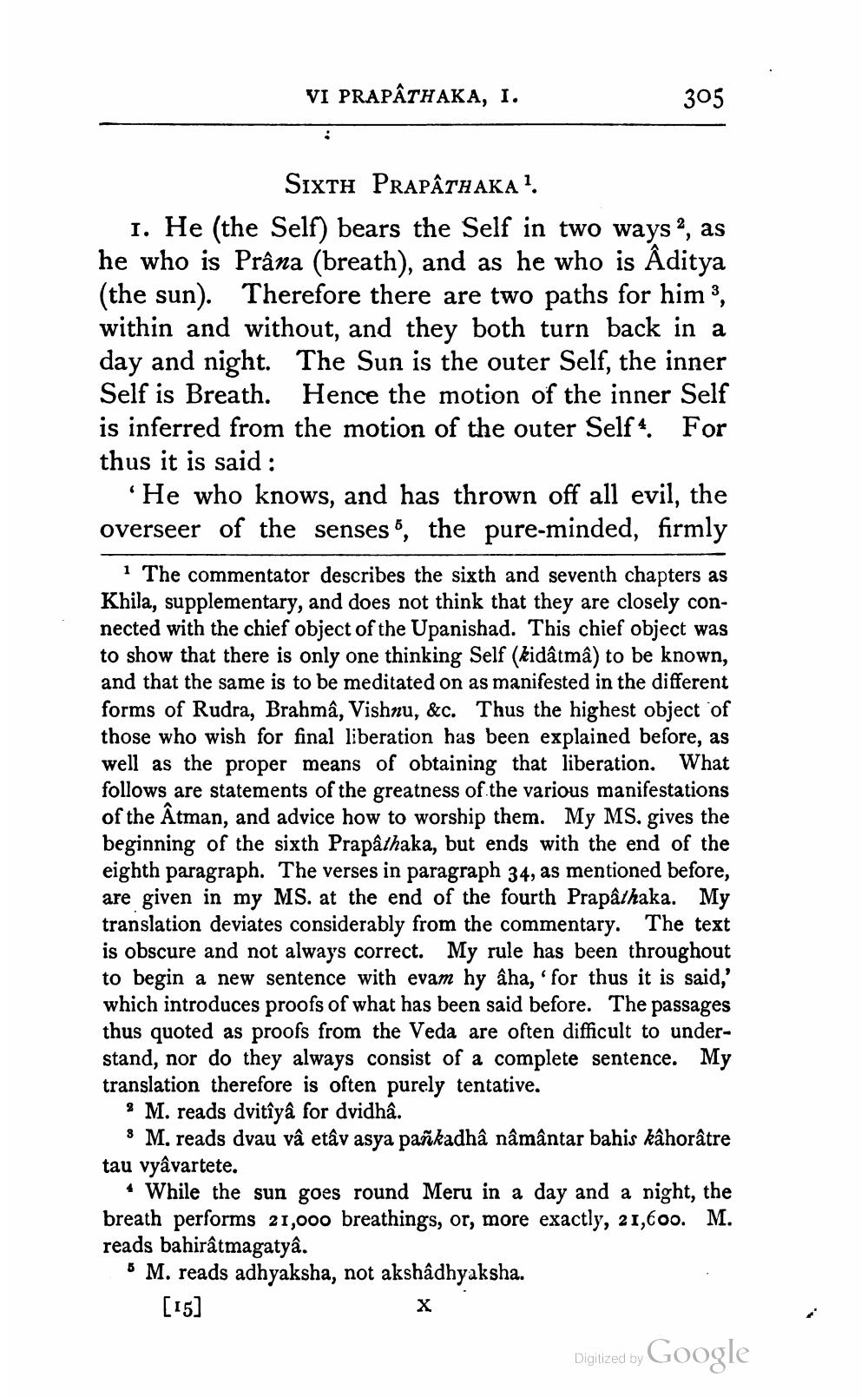________________
VI PRAPATHAKA, 1.
305
Sixth PRAPATHAKA ?. 1. He (the Self) bears the Self in two ways, as he who is Prâna (breath), and as he who is Aditya (the sun). Therefore there are two paths for him 3, within and without, and they both turn back in a day and night. The Sun is the outer Self, the inner Self is Breath. Hence the motion of the inner Self is inferred from the motion of the outer Self 4. For thus it is said:
'He who knows, and has thrown off all evil, the overseer of the senses, the pure-minded, firmly
1 The commentator describes the sixth and seventh chapters as Khila, supplementary, and does not think that they are closely connected with the chief object of the Upanishad. This chief object was to show that there is only one thinking Self (kidâtmâ) to be known, and that the same is to be meditated on as manifested in the different forms of Rudra, Brahmâ, Vishnu, &c. Thus the highest object of those who wish for final liberation has been explained before, as well as the proper means of obtaining that liberation. What follows are statements of the greatness of the various manifestations of the Atman, and advice how to worship them. My MS. gives the beginning of the sixth Prapathaka, but ends with the end of the eighth paragraph. The verses in paragraph 34, as mentioned before, are given in my MS. at the end of the fourth Prapathaka. My translation deviates considerably from the commentary. The text is obscure and not always correct. My rule has been throughout to begin a new sentence with evam hy âha, 'for thus it is said, which introduces proofs of what has been said before. The passages thus quoted as proofs from the Veda are often difficult to understand, nor do they always consist of a complete sentence. My translation therefore is often purely tentative.
9 M. reads dvitîyâ for dvidha.
8 M. reads dvau vâ etâv asya pañkadhâ nâmântar bahis kâhorâtre tau vyâvartete.
4 While the sun goes round Meru in a day and a night, the breath performs 21,000 breathings, or, more exactly, 21,600. M. reads bahirâtmagatya. o M. reads adhyaksha, not akshâdhyaksha. [15]
Digitized by Digitized by Google




